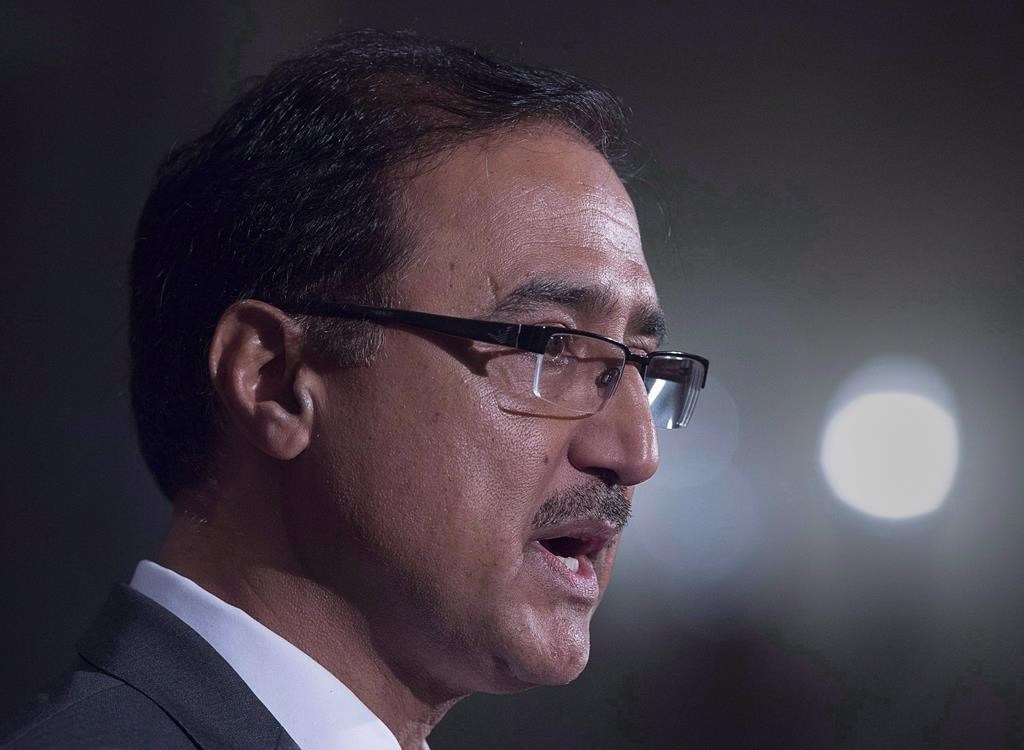Canada’s largest industrial facilities make up nearly half of the country’s greenhouse gas emissions. Delegates at the Alberta Energy Efficiency Alliance Summit at the Edmonton Convention Centre heard that stat Wednesday from Natural Resources Minister Amarjeet Sohi as he announced a new program to help 14 industrial facilities plan to upgrade their energy management systems.

Natural Resources Canada is funding a provincial program, Energy Efficiency Alberta, to the tune of $1.8 million, to help the largest emitters find ways to make reductions. Small and medium-sized facilities are already part of the program.
“What we have found is, when you give them the necessary support and the amount of changes they can make, it allows them to reduce their greenhouse gas emissions significantly,” Sohi told Global News after making the announcement. “In some cases, five per cent every year.”
Monica Curtis, the CEO of Energy Efficiency Alberta, told the summit the 14 companies will be able to get on-site training to improve energy management.

Get daily National news
“With this support, we’ll be able to extend that to our large final emitters — to those large oil and gas, forestry, cement and alike organizations — to support their goals to reduce energy use, improve operational facilities, lower greenhouse gas emissions and provide a path to achieve ISO-5001 certification.”
Meanwhile, Sohi gave an update on the consultations going on with First Nations and other communities along the route of the Trans Mountain pipeline, although he didn’t give up much in the way of specifics.
Sohi told Global News there are eight teams of 60 individuals who are consulting with more than 85 communities. He won’t divulge how many have signed off in agreement after one-on-one talks.
“We are not in a position to say how many have agreed and how many have not agreed yet, because it’s a work in progress.”
“Once we have concluded the entire process at that time we’ll be in a better position to make that information public.”
Among the main topics of discussion are where the pipe is specifically expected to go to maintain traditional food supplies.
“Protection of food sources, fish, picking of berries… where the route is going and how the route is impacting their traditional lands, or inter-related to marine shipping, the impact of a spill, for example.”
The National Energy Board (NEB) gave approval of the Trans Mountain pipeline on Feb. 22. Sohi said he’s confident cabinet will have enough time over the 90 days after the ruling to consider the NEB approval and decide whether to continue forward with the project.
The federal government owns the existing pipeline after purchasing it from Kinder Morgan last year.










Comments